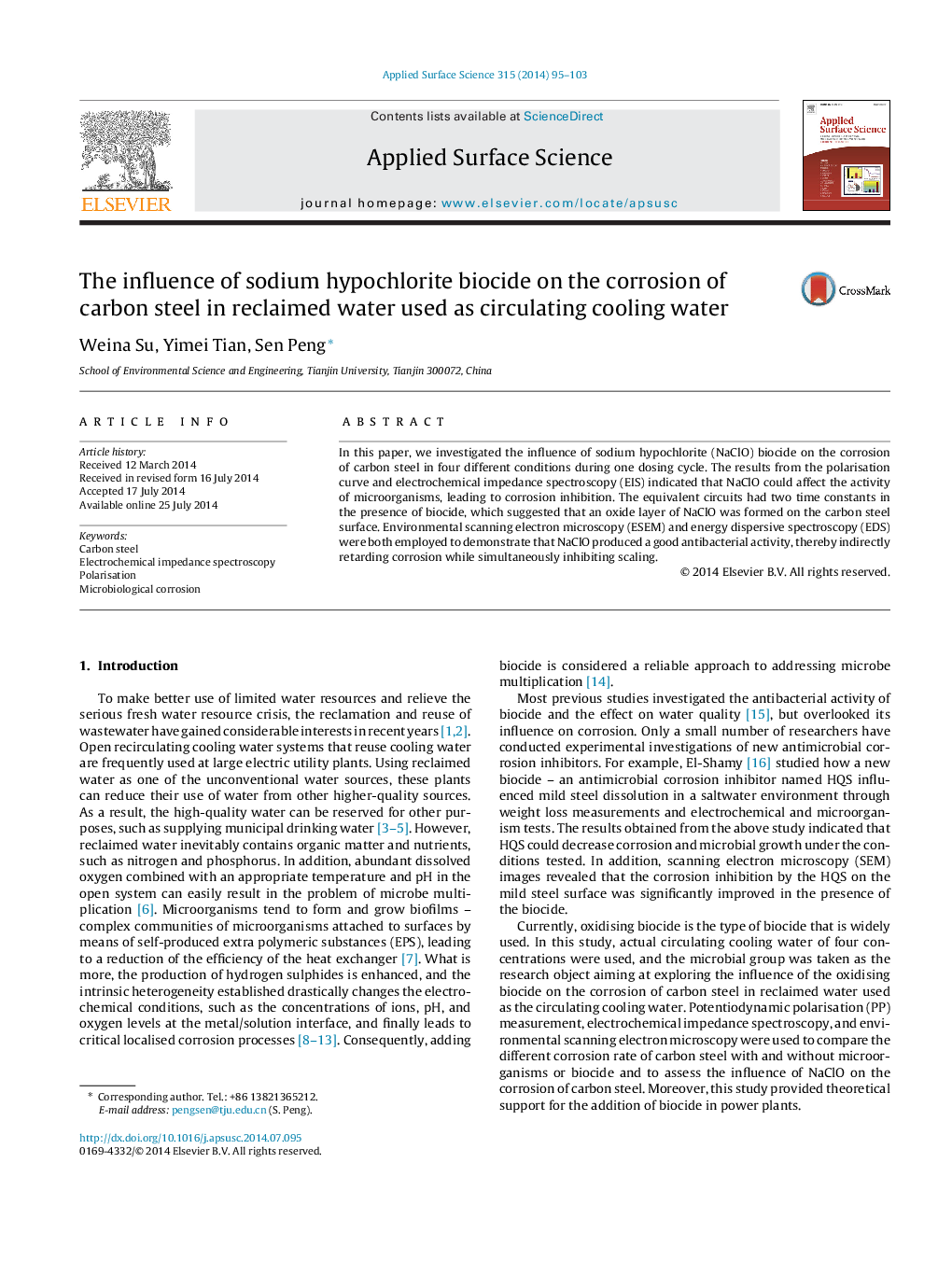| Article ID | Journal | Published Year | Pages | File Type |
|---|---|---|---|---|
| 5351132 | Applied Surface Science | 2014 | 9 Pages |
Abstract
In this paper, we investigated the influence of sodium hypochlorite (NaClO) biocide on the corrosion of carbon steel in four different conditions during one dosing cycle. The results from the polarisation curve and electrochemical impedance spectroscopy (EIS) indicated that NaClO could affect the activity of microorganisms, leading to corrosion inhibition. The equivalent circuits had two time constants in the presence of biocide, which suggested that an oxide layer of NaClO was formed on the carbon steel surface. Environmental scanning electron microscopy (ESEM) and energy dispersive spectroscopy (EDS) were both employed to demonstrate that NaClO produced a good antibacterial activity, thereby indirectly retarding corrosion while simultaneously inhibiting scaling.
Related Topics
Physical Sciences and Engineering
Chemistry
Physical and Theoretical Chemistry
Authors
Weina Su, Yimei Tian, Sen Peng,
